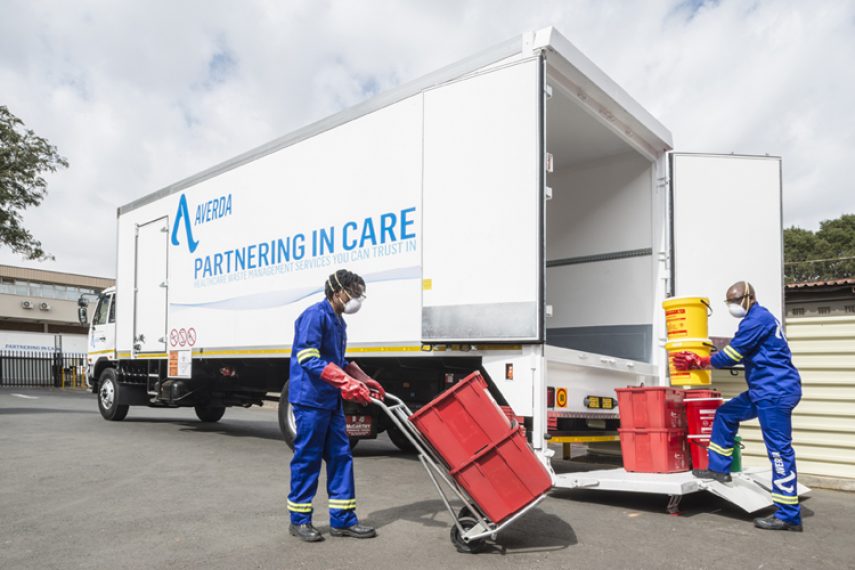Sanitary waste receptacles are used for the disposal of a number of personal hygiene products, often used to clean and manage bodily excretions like blood and mucus. This waste runs the risk of carrying infectious pathogens such as Hepatitis B and HIV and should be handled with care.
Considering its infectious nature, corporate entities should ensure their sanitary waste is treated with the same procedures and precautions ascribed to Health Care Risk Waste. However, the lack of formal legislation governing sanitary waste means that too many companies are shirking their responsibilities.
That’s the warning from Eugene Barnard, Head of the Healthcare division of Averda South Africa, a global provider of integrated waste management services.
“Many huge businesses – computer firms, banks, and mining houses – are large originators of sanitary waste. As responsible corporate citizens they are obligated to ensure their activities don’t pose a risk to public or environmental health,” said Barnard.
“Sanitary waste generators should be asking their service providers whether their waste is being responsibly disposed of in a manner that can be traced back to origin.”
Although these have not yet officially been written into law, Averda manages waste according to the draft Health Care Risk Waste (HCRW) Management Regulations drawn up by the Minister of Water and Environmental Affairs in August 2011.
These classify sanitary waste as a HCRW and mandate that it should be subject to the same treatment and disposal procedures. This includes sterilisation of waste by incineration as a prerequisite to disposal. The ash must then be disposed of under dry conditions at an approved hazardous waste site.
“We believe in going beyond the minimum legal requirements to ensure that sanitary waste – which, of course, includes sensitive substances such as blood – is treated in such a way that it is disinfected beyond a shadow of a doubt,” said Barnard.
Preventing the spread of pathogens is just one reason to encourage responsible waste disposal. Both incineration and approved Electrothermal deactivation (ETD), which is similar to microwave technology, also result in a significant reduction in waste volume – critical in South Africa where, according to the Department of Environmental Affairs, landfills are in short supply.
Sending sanitary waste to landfill sites that aren’t equipped to handle hazardous material poses the further threat of groundwater contamination. The moisture from rainfall and precipitation within a landfill passes through surrounding solid matter, extracting some of its components. The resulting liquid (called “leachate”) poses a significant threat to both surface water and groundwater if it is not contained.
“In parts of the Western Cape, where water shortages have already reached terrifying proportions, the potential for surface and groundwater contamination must be avoided at all costs,” said Barnard.
Averda is also harnessing Radio Frequency Identification (RFID) technology to track waste and automate traceability, something it described as a first for waste industry in SA.
RFID uses electromagnetic fields to identify and track specific tags – in this case, tags attached to HCRW containers – resulting in a more accurate, efficient and compliant HCRW management system.
“RFID will give us the ability to record transactions from inception to completion in a manner in which human intervention is largely eradicated, along with human error,” said Barnard.
“Our RFID tracking and e-info dashboard system aims to provide our clients with easy to access, secure and real-time overwatch capability, showing them when, where and how much material is collected, transported, treated and disposed.”

